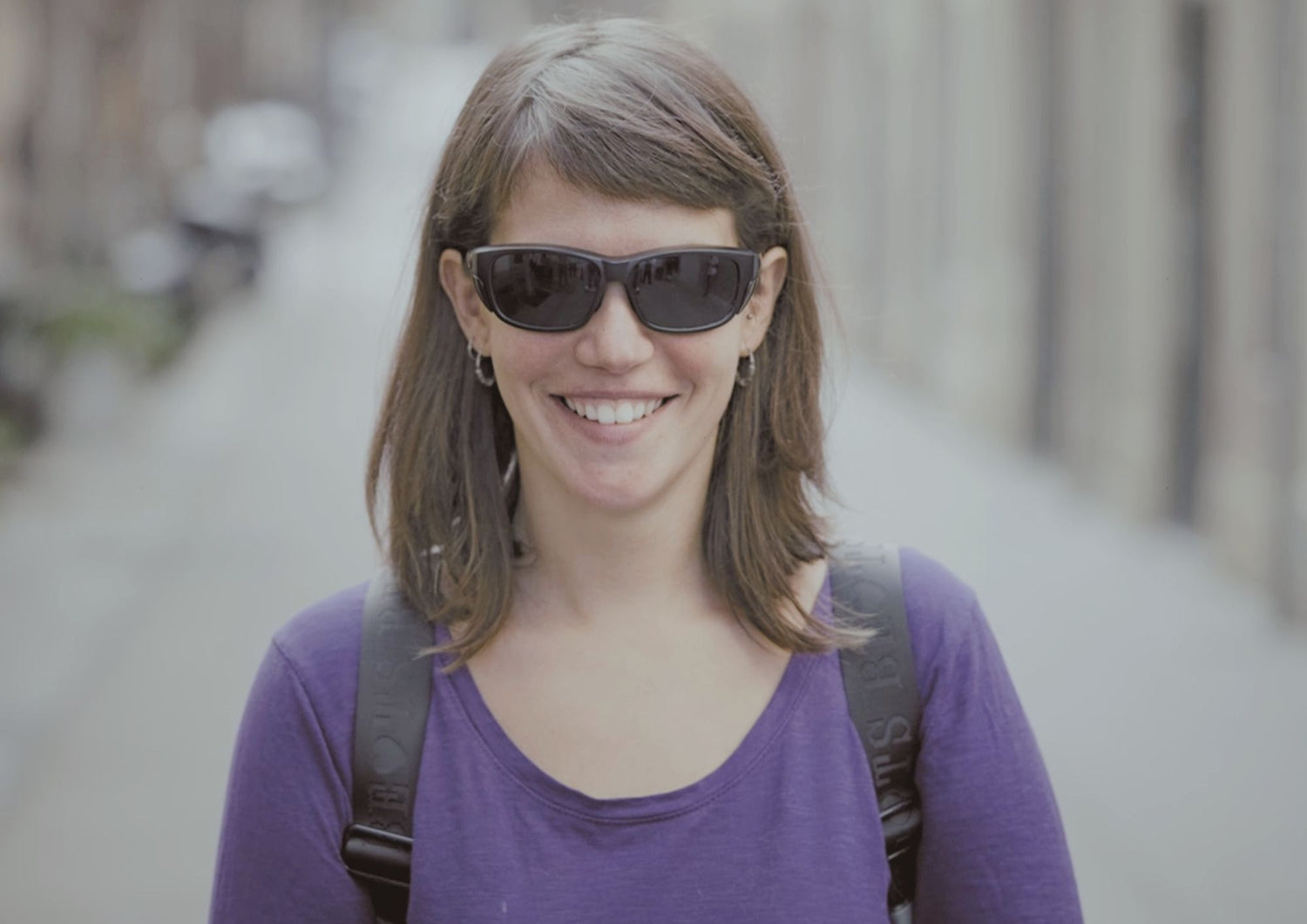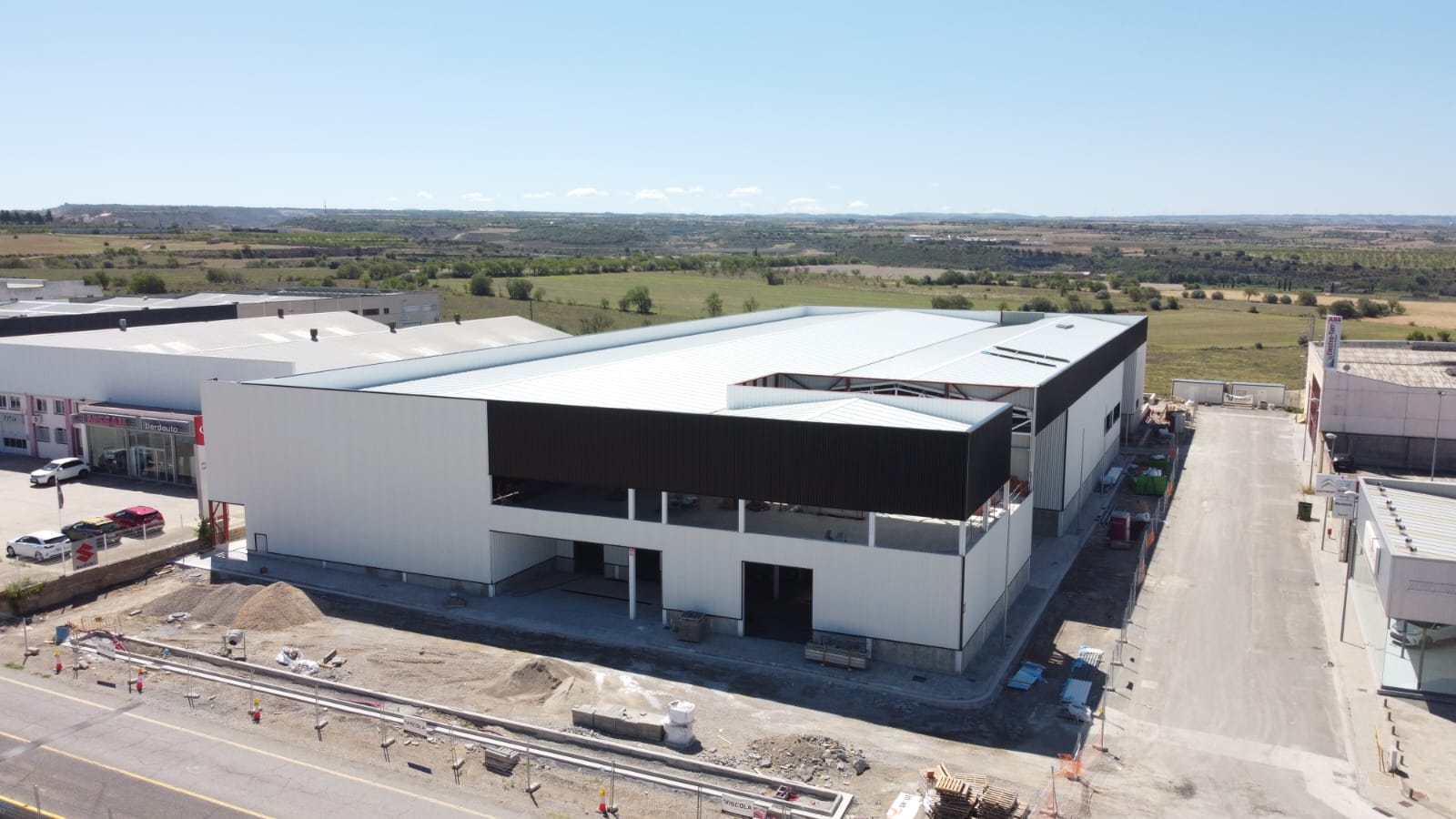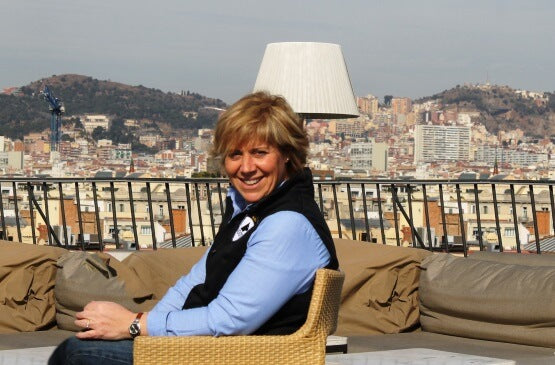Alba Morancho is a 37-year-old mother of two daughters and works in social education. One day, her life changed completely when she was diagnosed with Cone-rod Dystrophy, a rare condition that seriously impacts eyesight. From the start, Alba was determined to be strong and not let the situation affect her personality.
Good morning, Alba. Can you explain to us what Cone-rod Dystrophy is?
So, basically, the eye contains cells that work as photoreceptors. This condition causes these cells to die and not regenerate. As a result, you have gradually fewer photoreceptors and your sight gets constantly worse over time.
When were you first diagnosed? How have things changed since then?
I was first diagnosed when I was 12 years old because I couldn’t read very well at school and, when we did sports, I was getting more and more clumsy. One day I was talking with my friends and they realised that something was wrong with my eyesight. I went to the optician and they discovered that a large part of my visual field wasn’t receiving any stimulation at all.
How has having to live with this condition changed your life?
Because it’s a degenerative condition, my eyesight is constantly getting worse. It’s a rare condition and very few people have it. The only thing that we know is that you progressively lose your eyesight until you are practically blind.
You’re a member of the Catalan Association for the Blind and Visually Impaired: B1B2B3. What does this organisation do?
The association is a non-profit organisation that works to improve the well-being of visually impaired people and campaigns for legal changes to enable us to enjoy a normal life. We also work to raise awareness about the issues faced by visually impaired people so that we can improve social inclusion.
How did you find out about the association?
It happened completely by chance. I was studying social education at the Autonomous University of Barcelona at the time. I had already been diagnosed, but I wasn’t really aware of how this condition would end up affecting my eyes because I had still enjoyed a more or less normal life until that point. At university, there was an elective module that addressed issues in the care sector, and the professor taking the module was Martí, the president of the Catalan Association for the Blind and Visually Impaired.
What issues have they helped you with personally?
They help you to perform certain tasks that can be very difficult to do on your own, such as going to the doctor, going to the supermarket, etc. Thanks to the more than 600 members, volunteers and a few workers, these tasks are much easier. They also helped me to get my first guide dog, Obi, and they are currently helping me to live with Buddy. If all goes well, he will be my next guide dog.
How do guide dogs help you in your daily life?
The key thing is that they give you a lot more autonomy and allow you to feel safer in the street. You can move around town without bumping into things. When you walk with a stick, you’re really tense. You’re touching everything and you really don’t know what you’re going to find. With a guide dog, it’s completely different. If there’s a hole, they go around it. If there are some stairs, they mark the first step for you.
And there’s the emotional side too. They provide you with a lot of company. They’re always happy and always loving. They help to raise your self-esteem. I have a family, but you have to remember that there are many people who live alone and it’s very hard for them. Having a dog to accompany you everywhere really can make you much more relaxed.
One of the organisation’s objectives is to raise awareness. What do you think society needs to know about the blind and visually impaired?
Well, for example, talking about guide dogs, people need to know that if a dog is wearing a harness, it’s important to respect them and let them work. You can’t touch them. You can’t whistle at them. You can’t give them food. When they’re wearing a harness, that means they’re working and the only person who should interact with them is the owner.
Who trains guide dogs and how are they trained?
There is an association in Catalonia called IDDT (International Detector Dogs Team). They train all kinds of dogs for a wide range of jobs, including working as guide dogs. Another great thing about this organisation is that many of the dogs they train are adopted.
But they don’t just train the dog. They also make sure that the dog is the right fit for the user. Not every dog is going to work for every person. If a dog is very strong and active, they should be paired with someone who is strong and has plenty of energy. If a dog is much calmer, they would be better placed with someone who is also relaxed and less active.
What is the process for adopting a guide dog?
At B1B2B3, we have an agreement with IDDT. When someone requests a guide dog and IDDT has a dog that might be a good match, a process begins to socialise the dog with the adopting family. The dog and person live together for a few months to see whether they can develop a positive relationship. At the end of the process, if all has gone well, they receive a certificate from the Catalonia regional government to say that the guide dog belongs to that person.
How much does all this cost?
This is another thing that most people don’t fully appreciate. Guide dogs are valued at between €60,000 and €70,000. When a dog is adopted from our organisation, we assume around 80% of the cost. The rest is paid for by the user, so the financial implications can be something of an obstacle.
Can you imagine life without a guide dog? How many guide dogs have you had?
Well, personally, I can easily adapt. If I had to live without a guide dog, I would, but if I’m lucky enough to get the chance to have one, it would really make my life easier.
When Obi, my first guide dog, died, I said that I would never have another guide dog. But after a while, one day, Marga, the CEO of IDDT, told me that they had a new dog that would be a perfect match. We’ve been going through the socialisation process for almost a year now, and if everything goes well, Buddy will be my next guide dog.
What do you think about the Laumont initiative?
The day of the recording was really interesting. I’d never done anything like that. It’s wonderful that they want to make this issue more visible to society. It’s important that people understand the issues we face, how expensive it is to train a dog, and how important it is for people to help. I’m delighted to be part of this project.
We’re really delighted that you’ve agreed to be a part of this initiative too. To finish off, if people would like to learn more about the Catalan Association for the Blind and Visually Impaired, where can they find more information?
They can find out more or contact us through the website www.b1b2b3.org or send us an e-mail to info@b1b2b3.org.
Many thanks for your time, Alba
Thank you.


